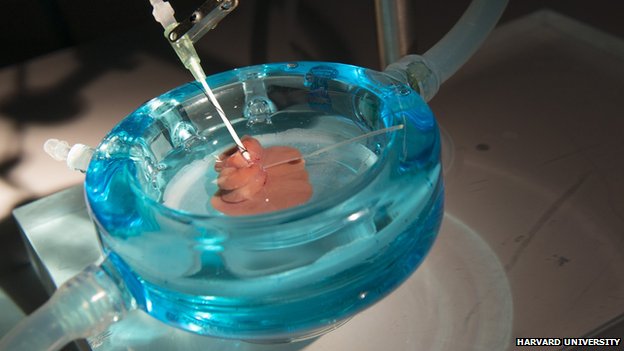Organ transplants: ‘Supercooling’ keeps organs fresh

By James Gallagher Health editor, BBC News online
29 June 2014 Last updated at 18:08
A new technique can preserve organs for days before transplanting them, US researchers claim.
"Supercooling" combines chilling the organ and pumping nutrients and oxygen through its blood vessels.
Tests on animals, reported in the journal Nature Medicine, showed supercooled livers remained viable for three days, compared with less than 24 hours using current technology.
If it works on human organs, it has the potential to transform organ donation.
As soon as an organ is removed from the body, the individual cells it is made from begin to die.
Cooling helps slow the process as it reduces the metabolic rate of the cells.
Meanwhile, surgeons in the UK carried out the first "warm liver" transplant in March 2013 which used an organ kept at body temperature in a machine.
The technique being reported first hooks the organ up to a machine which perfuses the organ with nutrients.
It is then cooled to minus 6C.





